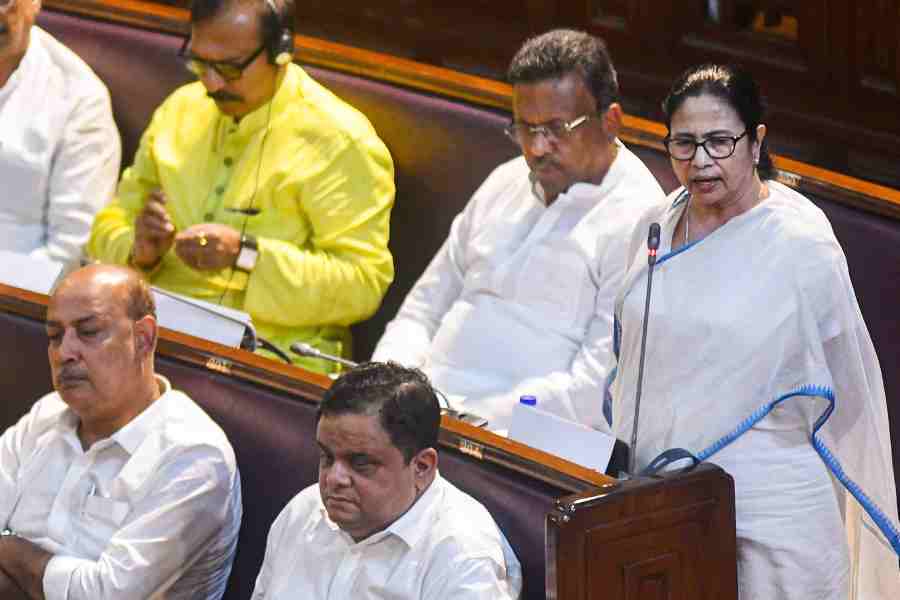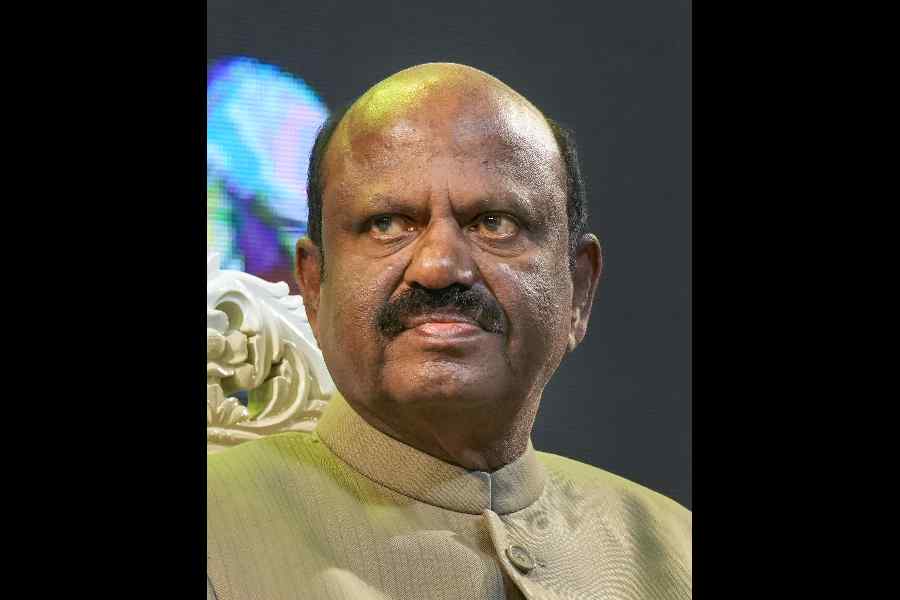A resolution passed in the Bengal Assembly by an overwhelming majority of members on Thursday may have arguably given Poila Baisakh, the new year’s day of the Bengali calendar usually observed on April 15, some kind of an official status to double up as the state’s ‘Foundation Day’ and Tagore’s Banglar Mati Banglar Jol as Bengal’s ‘State Anthem’. But whether they would ever enjoy any kind of statutory validity seems is a different question altogether.
Besides the political ping-pong being played over the date controversy alongside Bengal chief minister Mamata Banerjee scoring brownie points in this round of the tussle with the Centre over its order to observe June 20 as the state’s Foundation Day, there’s likely to be little difference on the ground -- besides adding to people’s confusion on having two dates to observe the same day, experts opined.
That, and the resource strength of the two groups who favour either of the two dates would evidently determine which date is observed with greater fanfare next year when opportunity beckons.
“I do not care if the Governor refuses to approve this resolution. We will observe the day anyway,” Banerjee said on the floor of the Assembly during her speech in support of the resolution minutes before BJP legislators, led by Suvendu Adhikari, marched to Raj Bhavan to urge the Governor CV Ananda Bose to not put his signature on the resolution. “Let us see who has greater power, the people or a nominated person to a Governor’s chair,” Banerjee declared.
“A resolution passed in the Assembly is merely a wish of the legislators. It doesn’t gain any official status unless the Governor puts his signature on it since he is an integral part of the Assembly,” explained Professor Biswanath Chakraborty, a teacher of political Science at the Rabindra Bharati University. “A resolution also has no effective meaning and can’t be implemented,” he added, “unless it is followed up by an administrative order from the state government.”
But what if an administrative order from, say the state home department, is issued echoing the resolution? “In the eventuality of a conflict the Constitution is very clear,” Chakraborty stated, “The Central order would prevail over that of the state.”
The order issued to Raj Bhavans across the country to observe June 20 as Pashimbanga Divas, based on deliberations which took place on that day at the state Assembly of pre-Independent India in 1947, originated from the Union home ministry and, as claimed by Adhikari, validated by President Droupadi Murmu from her official social media handle. Ignoring Banerjee’s requests to refrain from celebrating that day as such since it evoked “painful and traumatic memories of partition” besides being a “unilateral and non-consultative decision” by the Centre, Bose went ahead with the celebrations at Raj Bhavan with a fair amount of pomp and show.
As a countermeasure, and opposed to the name fixed by the Centre, the state resolution designates Poila Baisakh as ‘Bangla Divas’. An earlier state resolution to change the name of the state from West Bengal to Bangla currently gathers dust in the offices of the Governor and the President.
On the question of whether statehood day on Poila Baisakh and the State Anthem now officially enjoys state government recognition, state parliamentary affairs minister Sovanden Chattopadhyay was unambiguous. “Following the passage of the resolution in the Assembly, this is now official. We will send the resolution to the Governor for his approval since that’s the way it works. But we don’t need his permission on this since this is not a financial matter. We will henceforth officially observe this day as our statehood day, with or without the Governor’s approval,” the minister stated.
“Did the Governor consult the people of this state before observing that day at Raj Bhavan? It was a unilateral decision forced on us. Did the Prime Minister consult Parliament before changing the name of India to Bharat? He meddled with the Constitution out of his free will. If they can do such things in a unilateral manner, so can we. That was our message today,” Chattopadhyay declared.
Then why waste so much time and even use the Assembly floor over an issue where obtaining the statutory seal of approval remains in doubt? “This certainly is not a waste of time,” opined Professor Chakraborty. “The amount of time that has been devoted to this issue and the manner in which attempts have been made to build public opinion against observing June 20 as statehood day is precisely the politics which the ruling dispensation wants to play,” he declared.











